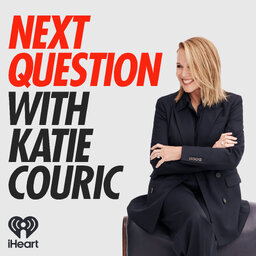Why Voters (and Which Voters) Returned Trump to Power with Brian Goldsmith
The 2024 presidential race has finally come to a close, but the conversation and questions about how things unfolded have just begun. For this election debrief, Katie is joined by Democratic consultant and friend of the pod Brian Goldsmith to examine the surprising dynamics of Trump’s 2024 victory, including the conventional-wisdom-smashing voter coalition that delivered him a second term. With the Democratic Party now facing tough questions about its future, Goldsmith explores what Harris’s campaign could have done differently and the soul-searching needed for Democrats to reconnect with an evolving American public.
 Next Question with Katie Couric
Next Question with Katie Couric


